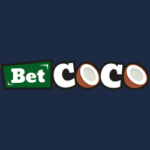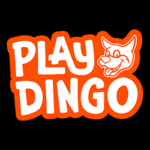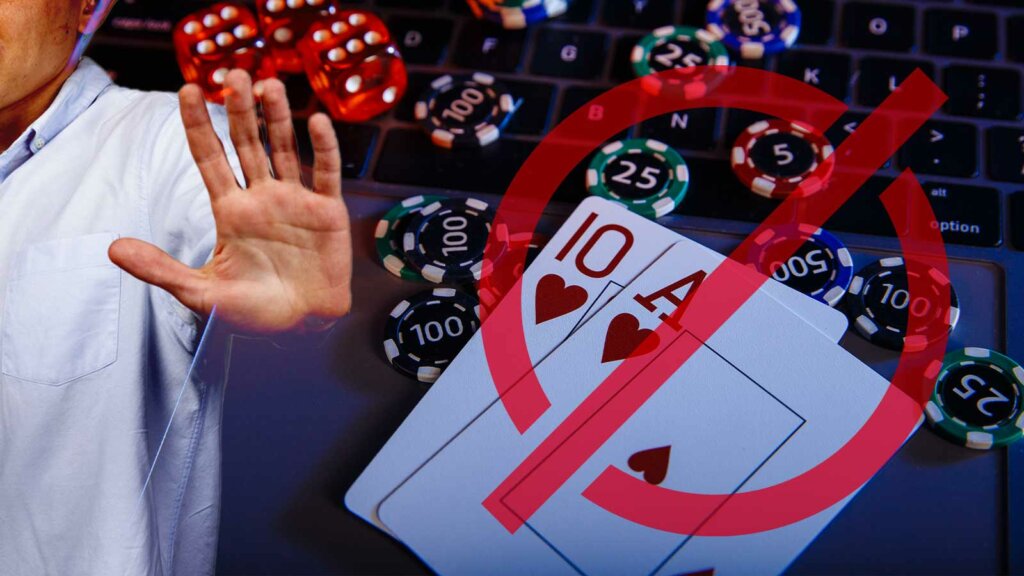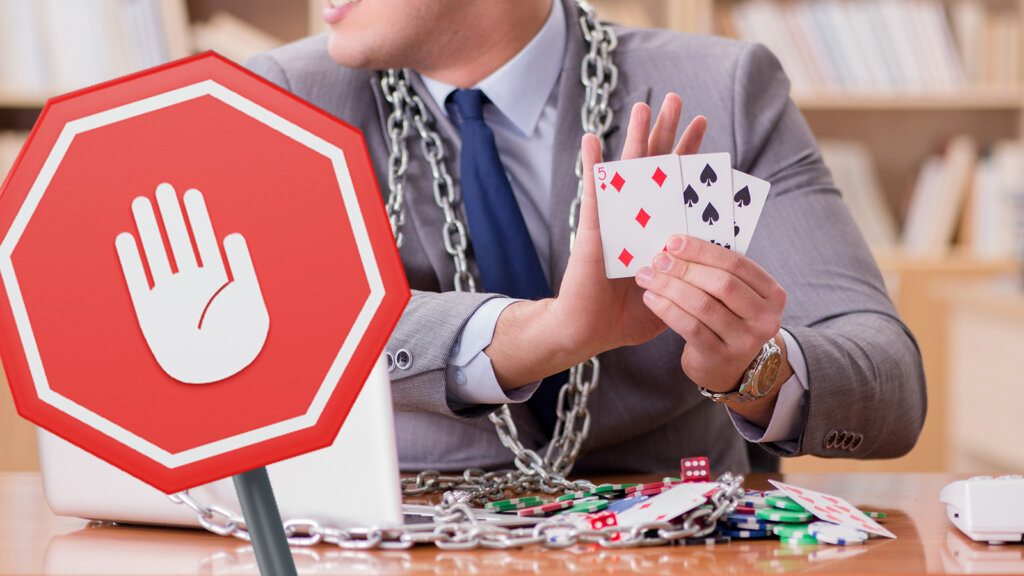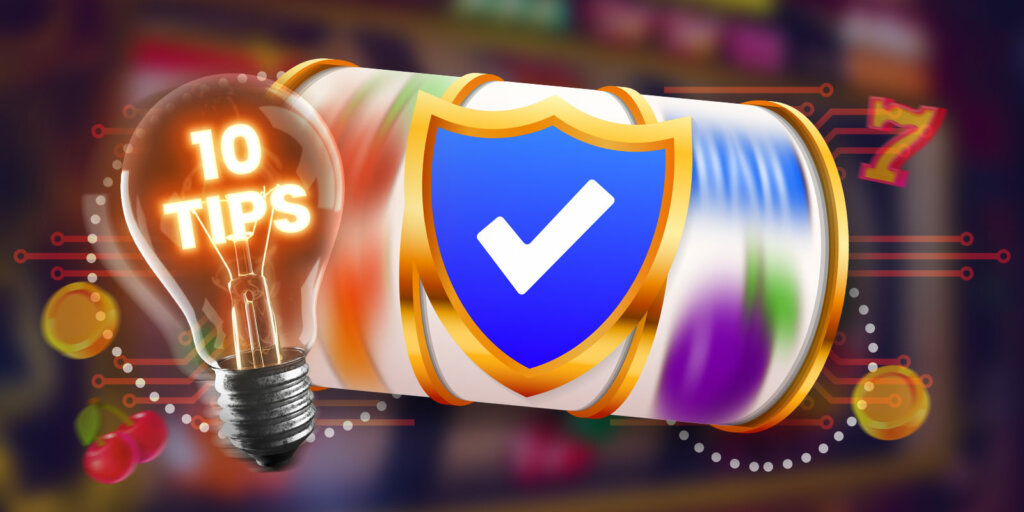
Protect your Child from gambling!
We explain everything you need to know about avoiding underage gambling. You will find not only prevention methods but also ways to redirect your child on the right path.
A parent’s main concern will always be protecting their child from imminent dangers. But what can you do when these hazards come from betting activities?
Here’s what awaits you:
Although underage gambling is strictly prohibited in New Zealand, many children and teenagers are practising this activity illegally, exposing themselves to multiple risks. If you suspect your child of attempting to access or even take part in betting activities, keep reading!
Important
According to NZ gambling laws, like the New Zealand’s Gambling Act 2003, it is legal to bet online after 18. Yet, taking part in gambling activities in a land-based casino is forbidden until the individual turns 20 years old.
Where to begin?

There are several measures you, as a parent, can take to prevent underage gambling and avoid the consequences of such behaviour. We are here to help you protect your child!
So, read the following guidelines carefully to understand what you have to do in this situation.
What are the steps?
- Inform yourself about the dangers of underage gambling and explore the industry to make an idea of what your child might be getting involved in.
- Follow the signs explained by us and determine if your child is gambling illegally or at risk of developing an addiction.
- Implement measures and boundaries meant to prevent gambling addiction.
- Seek professional help (optional step – should the situation be out of your control).
You have everything you need to complete the steps listed. Each section contains detailed information about what a parent should know and more!
The consequences of underage gambling
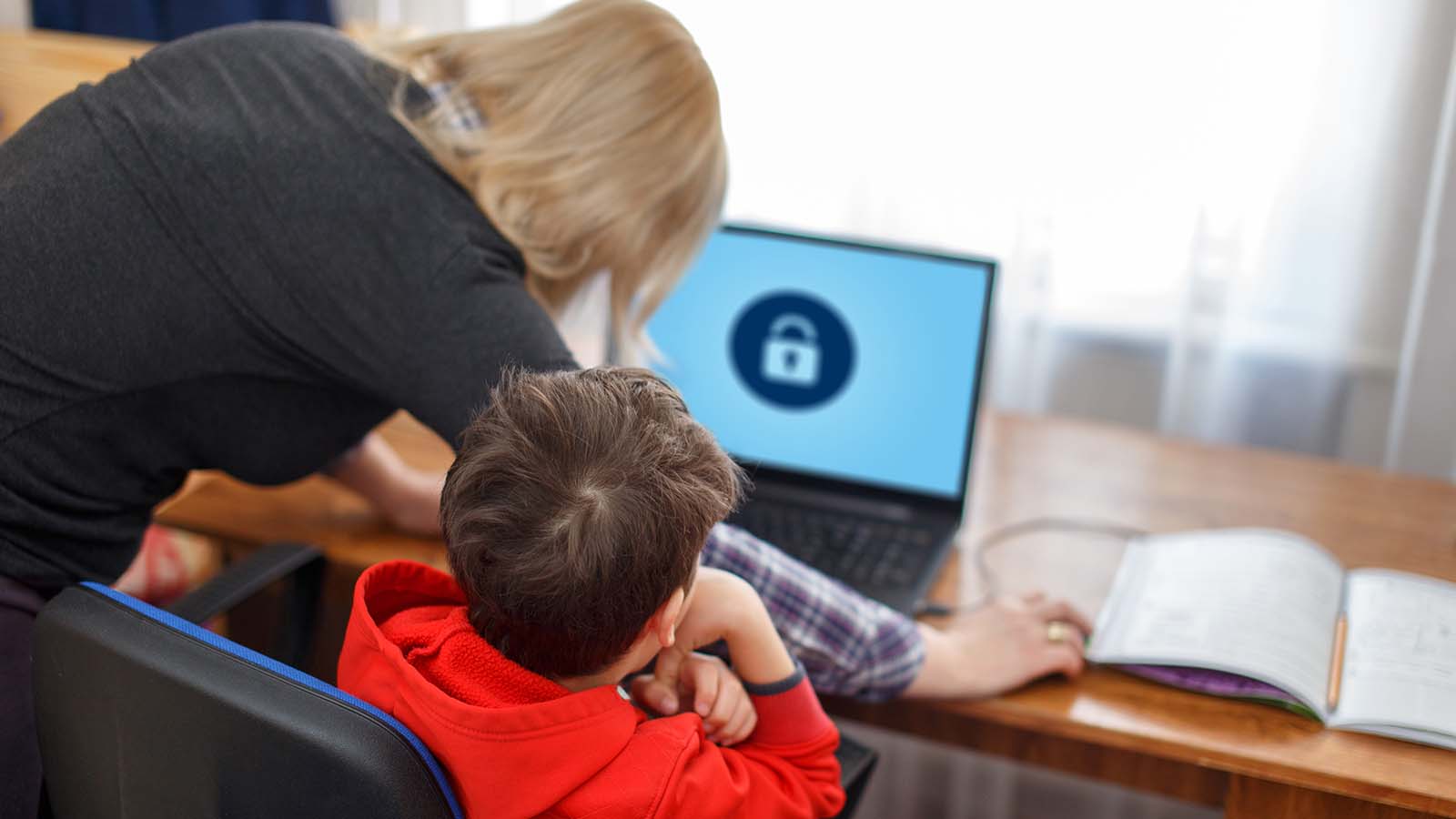
59% of youngsters aged 15-24 had gambled in the previous 12 months, according to the 2002 Health Survey. This shows that the country is dealing with a serious underage betting issue.
What are the dangers they expose themselves to when gambling under the legal age?
- Developing gambling addiction
- Poor academic performance, lack of motivation and concentration problems
- Social isolation and aggressive behaviour
- Involvement with illegal activities
- Depression, anxiety or other mental illnesses
- Self-destructive behaviour (e.g. alcohol or substance abuse, self-harm, suicide attempts)
- Difficulties in performing day-to-day activities or following a routine
What do studies say?

A study by the University of Auckland showed that teenagers who gamble under the age of 18 are more likely to develop an addiction and become problem gamblers in their adult years.
Important
The first national survey on pathological gambling, published in 1994, showed that more than 50% of those identified as probable pathological gamblers (PPGs) were aged under 30.
And even though it passed some time since the survey was conducted, this continues to be a common situation amongst Kiwi youngsters.
Is it just a local issue?
From an international point of view, we can say that this issue affects children and teenagers all over the world. When a person starts gambling from a young age, they are also more likely to develop an addiction.
Important
The gambling rate in teenagers aged 14 to 19 is two to seven times higher than in adults, as stated in a 2018 Fatherly report.
Why do children gamble?
A child’s reasons to bet are not much different from an adult’s. Apart from the obvious reason for earning money, which might not be as important for a kid, there is, of course, the excitement of the game.
What happens in the child’s brain when adrenaline kicks in?
The adrenaline produced by winning is the main force that drives a child to perform the action again and again. Sometimes, kids may start gambling as a result of seeing a friend or a relative do it.
In fact, this is the primary source that puts them at risk of developing gambling problems.
Other sources that might determine a child to gamble are:
- Gambling images and references on TV, billboards, posters, radio and other forms of advertising;
- Mobile and computer games which allow kids to wager virtual money for earning specific game benefits;
- Taking part in sports events or racetracks at a young age (where gambling is not mandatory but expected).
Recognizing a gambling problem
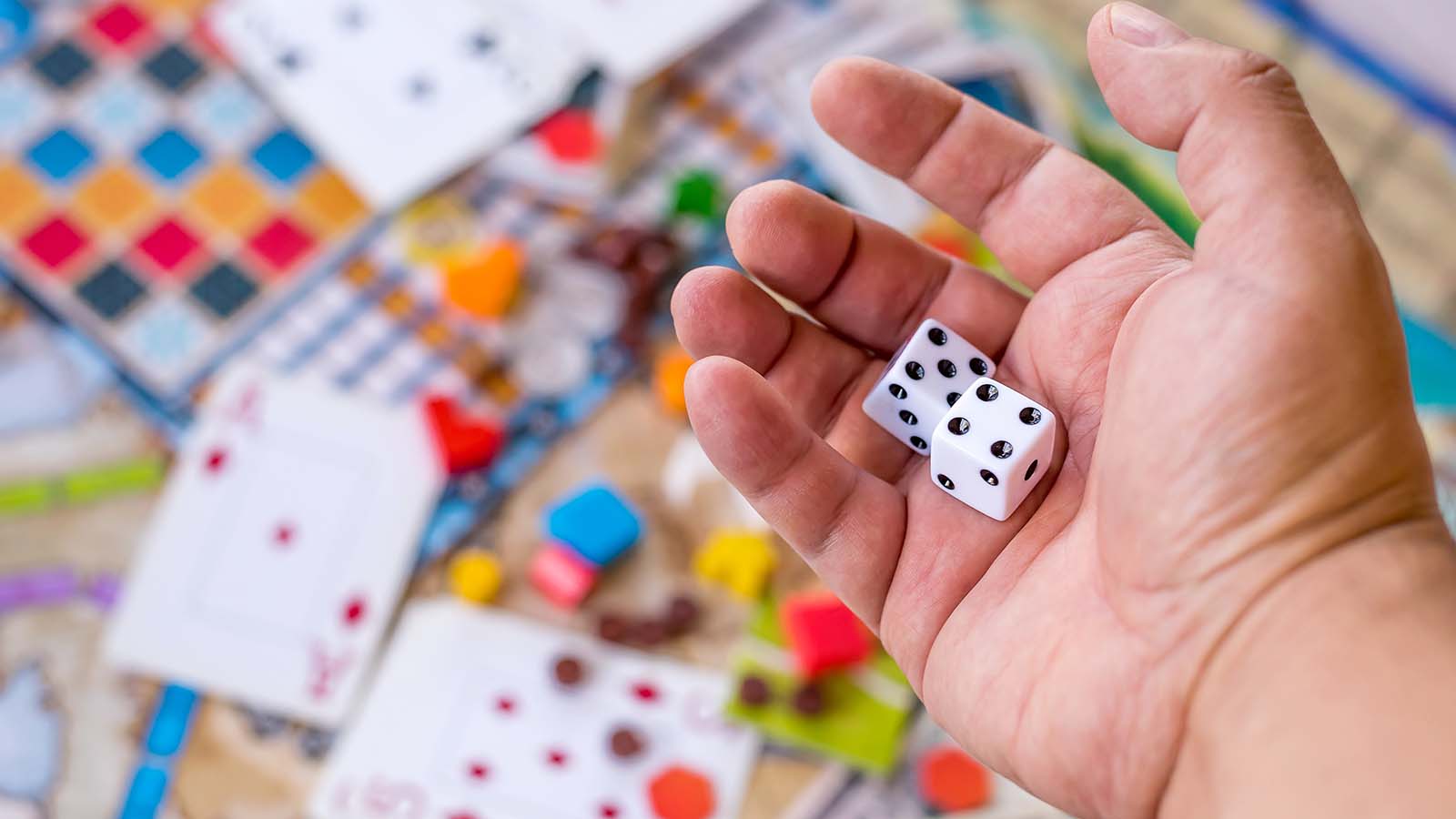
There are specific signs to look after when establishing whether gambling activities are involved or not.
Here’s what to watch out for:
-
Borrowing or stealing money/personal belongings
If you notice large amounts of money disappearing from your wallet or bank account, have a talk with your child.
Recommendation
Pay attention to your belongings and monitor the valuable possessions you have in the house to see if any are missing.
Your child suddenly asking for more pocket money or borrowing from acquaintances might be another important sign to look for. So, try to initiate a discussion about this or even get in touch with his/her close friends.
-
Unexplained school absences/sudden deterioration of grades

Talk to your child’s teachers regularly and ask them about his/her performances. Skipping school frequently or neglecting studying might be a sign of gambling.
-
An unaccountable explanation for newly purchased items
If you notice expensive items or belongings that you were not aware of, start asking questions and discussing the source of these new material additions. Should the explanation be doubtful or misleading, the money might be coming from betting activities.
-
Change of behaviour
This is another important sign that might indicate something is wrong. If you feel like your child is hiding things from you or avoiding interaction, start investigating the situation.
-
Unusual interest in reading sports magazines or watching sports news
This might signal that your child is involved with sports betting. Even if you are not around all the time to monitor this aspect, you can view his internet history or look through the magazines in your house.
-
Unusual emails/messages/mail

Suppose you suddenly start receiving gambling-related emails, messages or even mail. In that case, this might be a sign that your child has used your personal information to create an online gambling account.
Tips
Most legally functioning online casinos conduct KYC procedures to prevent underage gambling and other illicit activities.
How does the KYC work?
They usually ask for personal details like your name, email, home address and phone number.
After that, users are required to upload certain documents to verify their account information:
- Passport
- Driving license
- Bank statement
Because the details on these documents must match the ones provided upon registration, your child may use your personal data to sign up at an online casino.
-
Gambling ads
Pay attention to the ads that pop up on social media and on the Internet browser. If they are related to gambling or online casinos in any way, this is a clear sign that your child has accessed such a website before.
How can you be sure of this?
The advanced cookie technology of today allows us to receive personalized ads according to our search history. So, if you look for something online, similar suggestions may show up later.
-
Excessive gaming
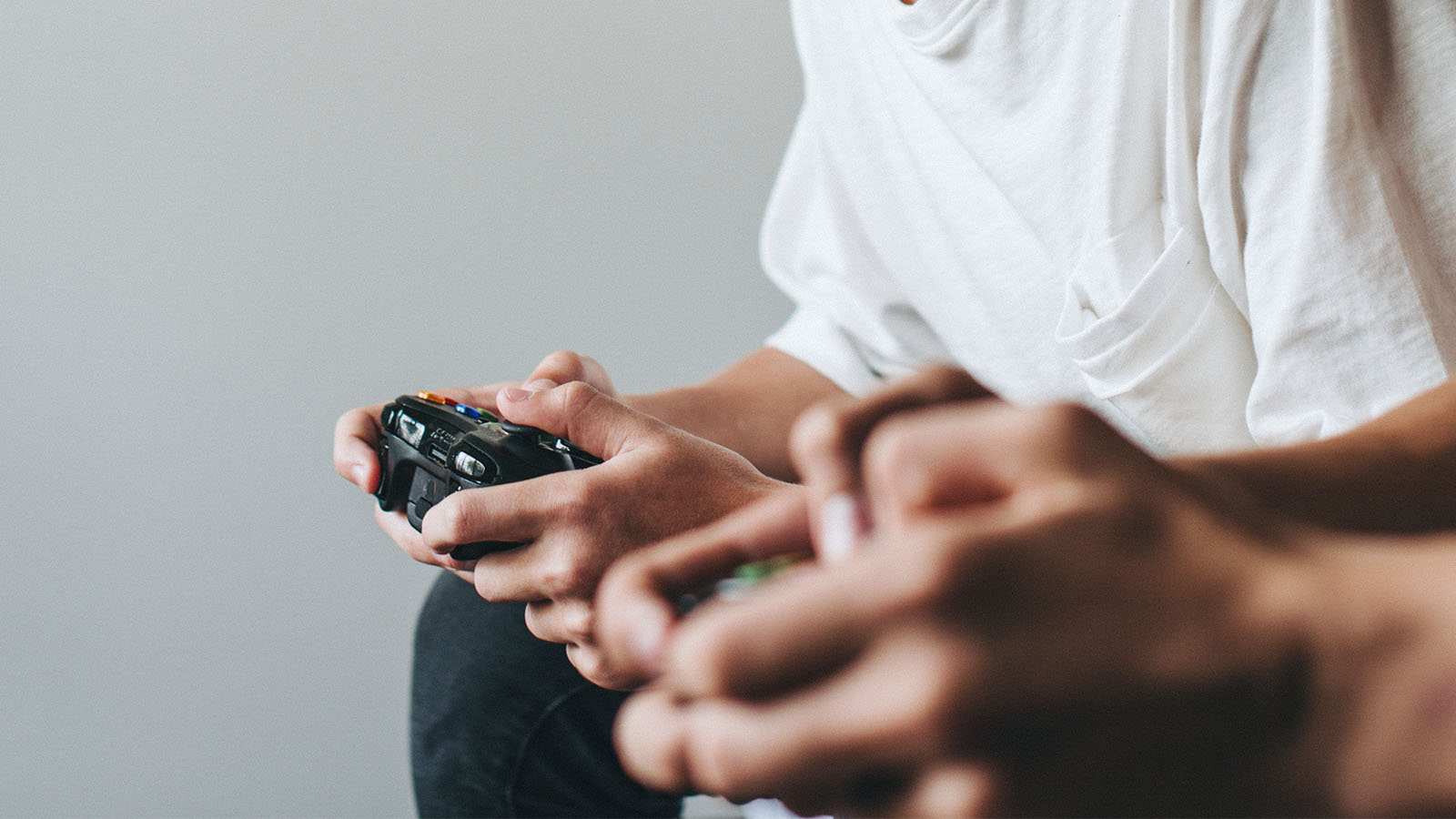
If your child is constantly playing video games, his interest in them might shift to gambling games.
Important
Excessive gaming can overstimulate the dopamine in the child’s mind, which can lead to addiction.
Moreover, there are a lot of online games simulating the betting experience. For example, Facebook offers multiple such options that anyone can access. You just have to confirm your date of birth. No additional documents are required to verify it. So, a minor can easily lie about their age.
How to prevent underage gambling?

You can take several measures to restrict him from further practice. These actions are also preventive and can be implemented even if the child has never taken part in betting. This is what you can do:
Monitoring the online activity
The online betting environment is so accessible, that children might be tempted to join gambling platforms.
Although licensed sites do their best to prevent underage gambling by conducting thorough verification checks, some operate unlawfully. Therefore, the child’s online activity must be restricted. You can do so via a variety of methods.
Parental control software
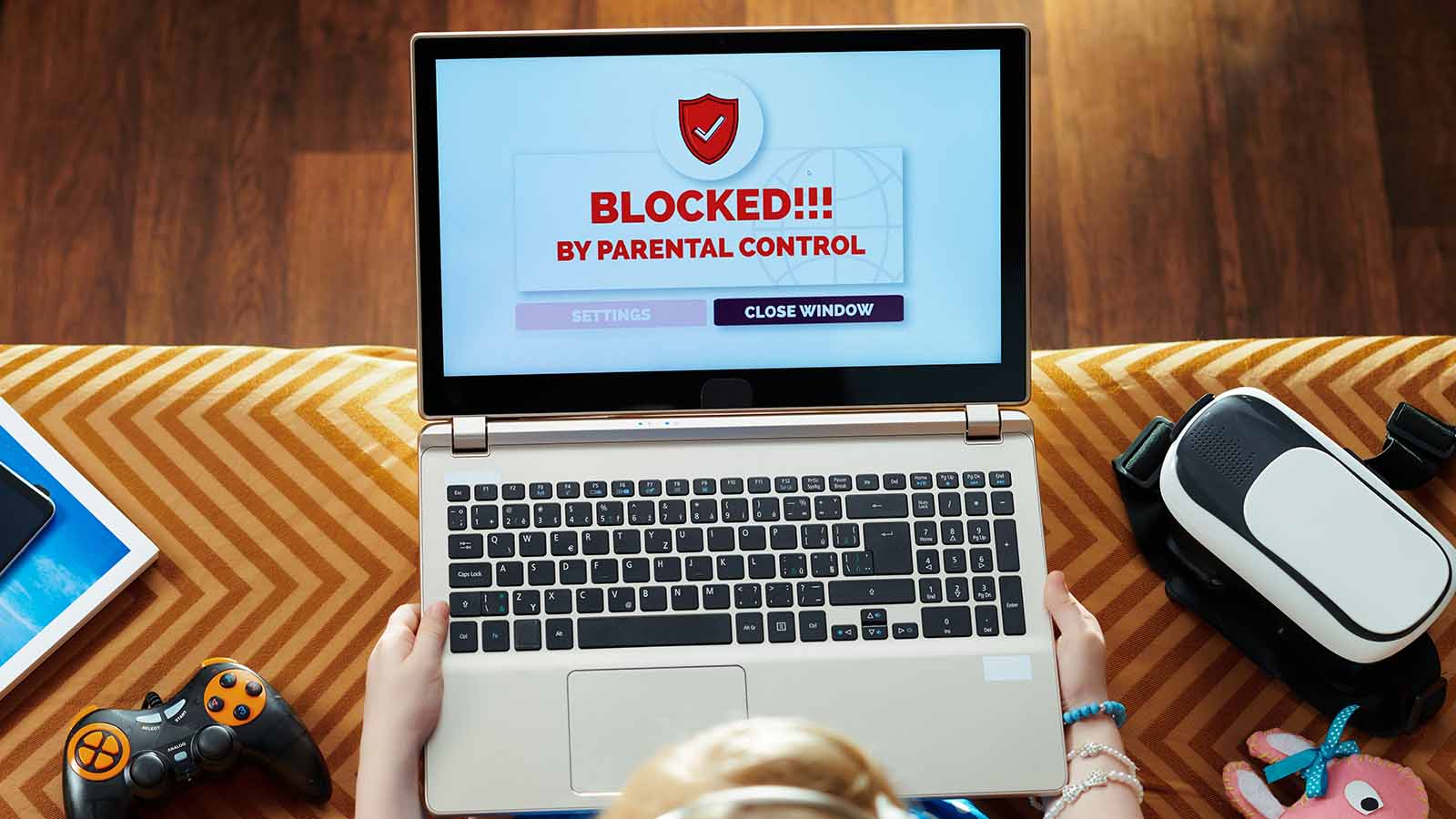
Perhaps the best way to monitor and restrict what your child accesses online is through parental control software.
Tips
These do not come as an incorporated feature of a computer and must be downloaded from an external source.
You can find plenty of free programs. However, the most efficient ones must be paid for.
How do they work?
Once you download and install parental control software, all you have to do is choose a suitable feature pack. Usually, all programs have free trials or a free version with limited features.
But for the advanced options, you must select a monthly or yearly paid plan.
These are some of the characteristics you may encounter:
- Web content filtering (blocking access to certain web pages)
- Safe search results (appropriate suggestions on search engines)
- Setting time limits (automatic log off)
- Ad blockers
- Social media monitoring (accessed accounts/pages, searches, restricted content, login hours)
- Parent dashboard (web statistics such as screen time, accessed pages, downloads, shared files, google searches)
The most popular applications on the market:
| Software | Type | Compatibility |
|---|---|---|
| McAfee Safe Family | Paid (includes 30-day free trial) | Windows, Mac |
| Norton Family | Paid (includes 30-day free trial) | Windows, Mac |
| Qustodio | Free features + paid yearly plan | Windows, Mac, IOS, Android |
| OpenDNS Family Shield | Free features + paid yearly plan | Windows, Mac |
| KidLogger | Free features + Standard/ Professional yearly packages | Windows, Mac, Linux |
| Kaspersky Safe Kids | Free/paid versions | Windows, Mac, IOS, Android |
Mobile protection

The majority of children spend more time on their phones than on any other device.
Thus, if your child owns one, we highly recommend monitoring it and setting some usage boundaries.
Because most online casinos are mobile compatible and can be accessed on any portable device, such as smartphones or a tablets. Moreover, some of them even have apps that can be downloaded from the App Store or Google Play.
Parental control mobile programs:
- Net Nanny
- OurPact
- ESET (Android only)
- Screen Time
- Qustodio
- Kaspersky Safe Kids
These apps have features like web content filtering, ad-blocking, time limits and call & text monitoring. Keep in mind that you have to pay for most of these features. Some of them are free or at least include a free trial.
An advantage of iOS users
They can also use the incorporated ‘Screen Time’ setting. This can automatically lock the device when the set time is up, restrict certain website pages and even block App Store purchases.
Follow the next steps to activate these features:
- Go to Settings and select ‘Screen Time’;
- Click ‘Content and Privacy Restrictions;
- Select one of the available options (app store purchases, allowed apps, content restrictions);
- Scroll through the displayed settings and choose how many you want;
- Exit the app (the settings will automatically save).
In addition to that, you may allocate your child a specific period of time to use the device within 24 hours. To do that, select ‘Use Screen Time Passcode’ and enter a 4-digit code.
When the time expires, the phone will automatically lock and can only be unlocked with the password you set or when 24 hours have passed.
Social media monitoring

Social media platforms like Facebook, Instagram or YouTube have the option of blocking certain accounts and pages from appearing on the timeline, it is your responsibility to determine the source.
Believe it or not, social media plays an important role in your child’s involvement with gambling.
For example, children may be tempted to try out these activities after watching some YouTube stars or influencers who promote them.
This is where things get a bit complicated
Try to find out what influencers promote gambling or other related activities and restrict their profiles from the social media account’s settings.
Some of the apps listed above have a monitoring option that allows you to see what your child watches on these platforms.
They won’t automatically block them. You will have to do this yourself.
YouTube has another interesting feature you may utilize
If you see a gambling-related video on the account’s home page, click on the three dots next to it.
After that, select ‘Don’t Recommend Channel’. When you do this, no further suggestions from that particular channel will show up, nor other similar videos.
Adblocking

If you have antivirus software on your child’s computer, there are high chances that it might have an ad-blocking option. You just have to make sure that it is turned on.
Most parental control apps also have this feature. With any of these programs, you don’t have to worry about gambling ads that might influence your child.
There is another way to block gambling-related ads.
There is another way to block gambling-related ads
- Open a browser on your child’s computer and log into their Google account;
- Click the round profile icon next to the URL bar;
- Select ‘Manage your Google account’;
- Click ‘Privacy & Personalization’ and select ‘Ad Personalization’;
- Click ‘Casual Games’ and press ‘Turn Off’;
- Repeat this step for the other game categories.
This will disable any Google ads related to gaming. But keep in mind that it only applies to web pages, not social media accounts.
Offline measures
Besides online prevention methods, you also need to take into account the ‘offline’ rules that must be followed to avoid underage gambling.
We guarantee they contribute to the well-being and protection of your child as much as the digital measures presented above, although they may not seem as effective. Let’s start with the most important one:
Communication

Explaining the risks and dangers of gambling to your child is crucial. Even though some of these hazards might seem obvious to you, problem gamblers may not be aware of them. But make sure is not a monologue.
Important
Allow your child to ask questions and present his point of view. Otherwise, he may take the discussion as a scolding and miss the whole point of it.
Moreover, don’t raise your voice, scream or make extreme hand gestures at your child. This will only cause dismay, leading to a pointless conversation and more reasons to hide his actions. Instead, explain everything calmly, in a manner that makes the child feel comfortable. And don’t forget to bring solid arguments and real-life examples.
Don’t just say that ‘gambling is bad’ or ‘you shouldn’t do it.’
Encourage hobbies and extracurricular activities

Believe it or not, this can actually have a huge impact on your child. It may not only prevent him from gambling, but it will also contribute to optimal mental and physical development.
First, ask your child what kind of activities he would enjoy. Then, start making suggestions and coming up with a schedule of activities to stop gambling.
You may recommend the child these activities:
- Practising a sport
- Learning how to play an instrument
- Start crafting and doing DIY projects
- Signing up to a social club
- Drawing or painting
- Reading or start collecting something
- Hiking or taking walks in nature
But remember not to force anything on your child. If you impose on him an activity he doesn’t like, the negative emotions inflicted by it will turn into anger and make him follow a completely different path. In this case, he may compensate for the pressure of doing that specific activity with something else that actually causes him joy.
In an unfortunate situation, this will make the child return to his gambling habits.
Don’t allow watching other family members gamble
We all know that children like to mimic what they see in their parents and family members. So, if you know someone in your household to be an active gambler, don’t let them influence the child.
Whenever this person is gambling, make sure that the child is in another room. Also, don’t allow him to take part in conversations about the positive aspects of gambling or how entertaining it is.
Don’t give access to your credit card or other forms of online payment
This prevention method is pretty straightforward. If you don’t allow your child to use your payment accounts, they won’t be able to fund any type of online gambling.
Recommendation
Make sure you don’t leave your debit or credit cards in plain sight or that you don’t have the financial details saved on the computer your child is using.
Try setting a monthly cash allowance instead and monitor how the child spends it. This will not only prevent online gambling, but it will also teach him financial responsibility. If he starts asking for more money, discuss the spending patterns and lower the allowance until you feel like he learned the lesson.
Seeking professional help

Suppose you already determined that your child is actively gambling and none of the implemented prevention methods worked. In that case, it is time to take further action by contacting an institution specialized in gambling addiction.
Recommendation
Once your child’s betting problems become too advanced, handling the situation yourself is no longer an option. So, we advise you to seek professional help.
This is what you can do:
Contact a gambling support organization
New Zealand has several institutions specialized in dealing with gambling issues. The main one is the Problem Gambling Foundation of NZ, which has multiple offices across the country.
This is how to contact them:
- Send an email at [email protected].
- Call 0800 664 262.
- Text 5819 to discuss with a trained counsellor.
- Access the online chat (Monday to Friday, from 8:30 to 5:00).
- Leave your contact details here, and a team member will get in touch with you.
In addition to that, you can call the National Gambling Helpline. It is available 24/7 and provides multiple phone lines for different New Zealand regions.
These are some of the available options:
- Nationwide – call 0800 654 655 or text 8006
- Youth Gambling Helpline – 0800 654 659x`
- Send an email at [email protected]
- Online forum
Get in touch with a psychologist
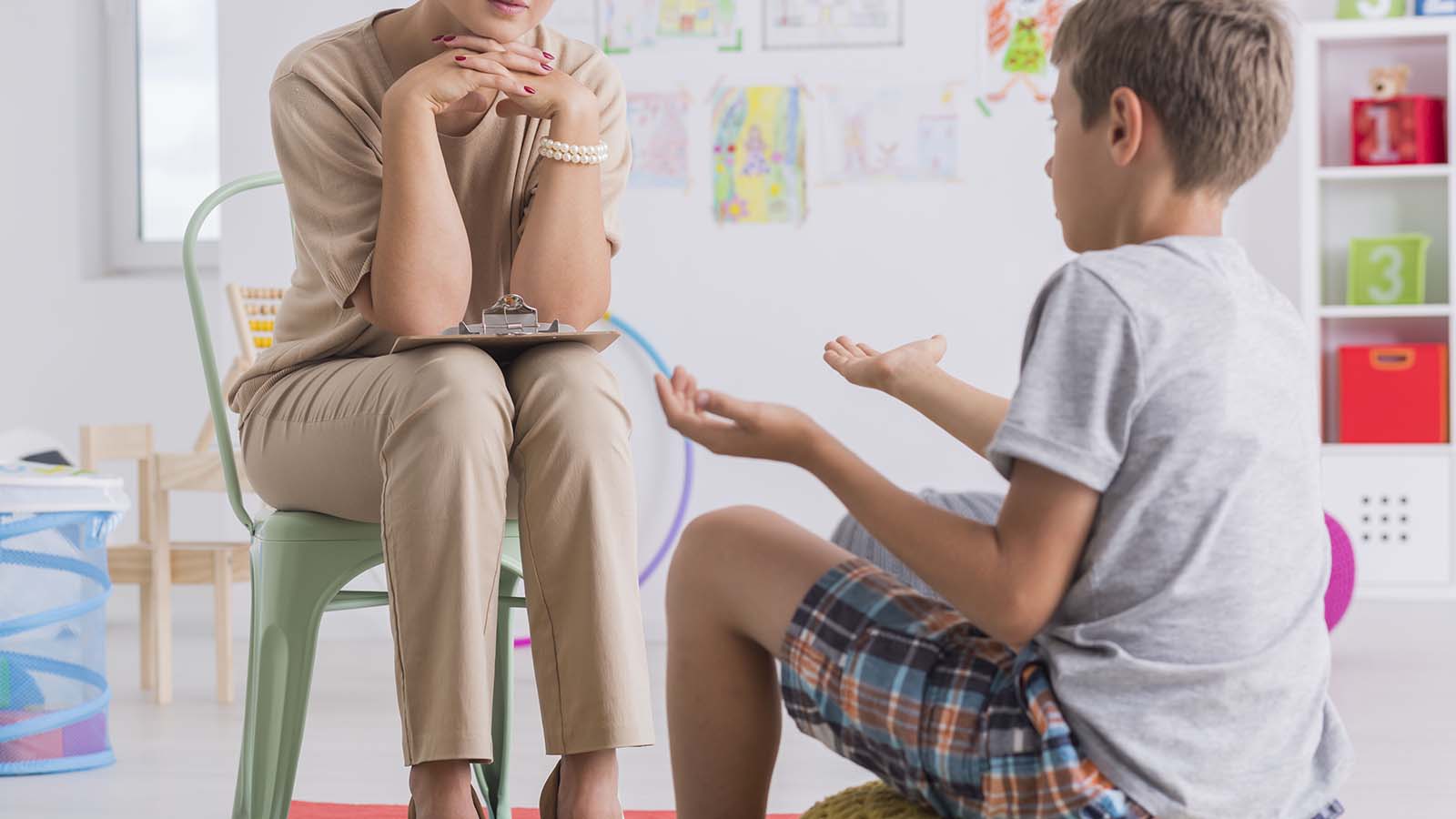
There are dozens of counsellors specialized in problem gambling and addiction. ABACUS is a private institution that works with multiple such professionals.
To discuss with one of them, you may:
- Send an email at [email protected]
- Call 09 360 6957
Moreover, you can browse NZCCP’s website to find a specialist in your region.
You can make an appointment with a clinical psychologist by completing the following fields:
- ‘I would like help with’ – gambling
- Select the treatment therapy
- Select a region
- Client type – child/adolescent
After that, a list of multiple psychologists who meet the specified criteria will show up. Choose one of them and click on the name to see their contact details.
Consider an addiction treatment centre
If you feel like your child needs extensive addiction treatment, you may look into one of New Zealand’s rehabilitation centres. Some of them have special programmes designed to tackle gambling addiction in both adults and children.
Have a look at the following centres:
- Capri Sanctuary (behavioural health treatment)
Phone: 0800 227 741
Email: [email protected]
- Odyssey House (16 years and over)
Phone: 03 3582690
Email: [email protected]
Keep this in mind
Gambling addiction is a serious problem that can affect not only adults but also children and teenagers. And like any other addiction, it is easier to prevent than to treat.
Take your time to carefully analyze all the information provided by us, compare your options and make a decision. We recommend taking preventive measures to protect your child and avoid underage gambling.
References
- Child gamblers: The signs to look out for and how to seek help
- Concerns online games are leading to underage gambling
- Gambling Addiction
- Gambling and teenagers
- Ministry of Health
- The Dangers of Youth Gambling Addiction
- The Health and Wellbeing of New Zealand Secondary School Students in 2012
- Too many children are hooked on gambling. Why aren’t they protected?
- What can parents do to reduce the risk of problem gambling for their children?


